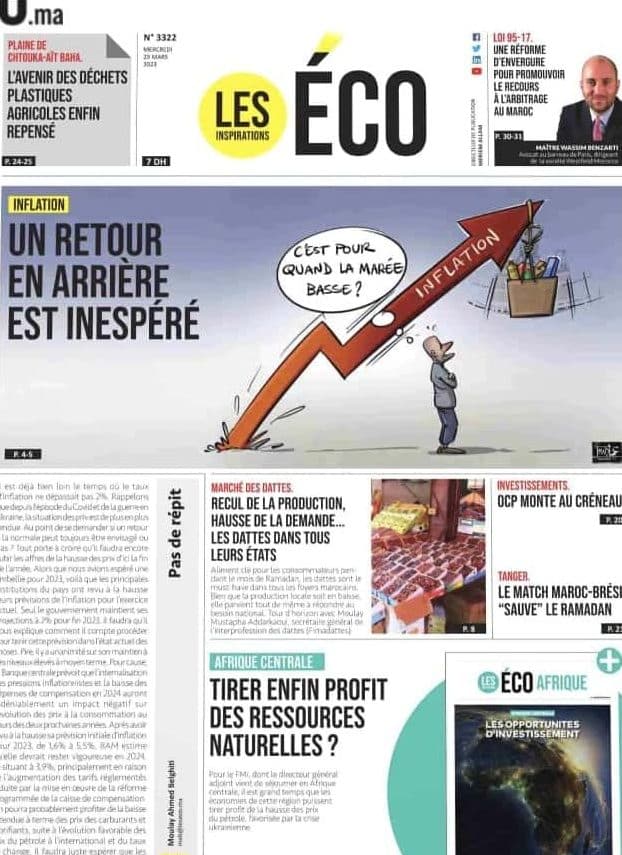Since the adoption of Law 95-17 on arbitration in Morocco, the country has undergone a significant reform of its legal system for dispute resolution. This law will have a significant impact on the investment climate in Morocco by encouraging the resolution of commercial disputes through arbitration, thus offering a fast, confidential, and effective alternative to civil courts.
The legislature has attempted to catch up with arbitration through this reform, thus filling the gaps and omissions of Law 08-05.
An independent arbitration code separate from the civil procedure code

Arbitration now has a separate code, independent of the civil procedure code. For the first time in Morocco, Law 95-17 has made it possible to organize arbitration and conventional mediation in a text independent of the Civil Procedure Code.
The new code has 150 articles, a significant increase from the old one, which had only 100.
An extension of the scope of arbitration
Law 95-17 significantly extends the scope of arbitration and restricts the use of state support judges.
For example, if a state judge becomes aware of an act or mutual agreement on recourse to arbitration, he immediately withdraws from the case. The arbitration agreement may also have been given by a simple exchange of emails or when one party raises the competence of the arbitral tribunal but the other does not contest it.Appointment of arbitrators and composition of the arbitral tribunal
One of the most notable changes is the consecration of the principle of independence by establishing a regime in which the arbitrator is not subject to a list established by the prosecutor.
Previously, the legislator required persons exercising the duties of arbitrator to make a declaration to the prosecutor general near the court of appeal. After examining their situation, the prosecutor general issued a receipt for the declaration and entered the interested parties on a list of arbitrators near the relevant court of appeal.
Now, the list of arbitrators will be set by a regulatory text, thus escaping any control of the prosecutor, who, due to his functions, unrelated to the practice of arbitration, is not the appropriate authority to designate competent arbitrators. This list will be established on the basis of the criteria of (i) scientific competence and (ii) experience.
In addition, the new law does not consider as grounds for challenging designated arbitrators:
- Professional links between the arbitrator and the representative of one of the parties to the dispute;
- Existing links between the arbitrators members of the arbitral tribunal;
- Disputes arising between the arbitrator and one of the parties in the context of a completed dispute submitted to arbitration.
Unfortunately, the existence of prior professional links in the arbitration procedure is not sufficient to guarantee the neutrality of the arbitrators designated by the parties. It would have been desirable for this new law to prohibit any professional links between the party and the arbitrator. In practice, each party will designate one of its counsels to represent it before the arbitral tribunal, and there could be confusion between the function of arbitrator, which requires total neutrality, and that of lawyer or counsel, which requires defending the interests of his client.
Extension of the scope of the law to the state, local authorities, and public companies:
When the contracting party is a public enterprise, a local authority, or the State, foreign investors may be apprehensive about designating the state court as the competent court to resolve a dispute. In fact, many foreign investors simply refuse to submit a contract signed with a public entity to the state court. As a result, many investors could not contract with public entities and organizations.
One of the contributions of this law is the possibility for disputes relating to contracts concluded by the State, public enterprises, or local authorities to be subject to an arbitration agreement in compliance with the special provisions relating to control, provided for by the legislative or regulatory texts in force concerning these contracts.
Previously, public entities needed authorization from the supervisory authority to resort to arbitration. Many procedures were held without this authorization. Today, the law specifies that in the absence of this authorization, the arbitration procedure is still valid. This is a disruption of the theory of administrative acts to provide more legal security for arbitration agreements. Litigants or Moroccan entities will have every interest in resorting to arbitration in their relations with the administration and public enterprises. By way of comparison, French law does not allow this (except for international trade), and Moroccan law is more advanced on this point in terms of arbitration.
Public enterprises in the form of commercial companies (OCP, RAM…) can resort to arbitration with the agreement of their board of directors or supervisory board. However, disputes relating to unilateral acts of the State, local authorities, or other entities enjoying public power prerogatives cannot be subject to arbitration under any circumstances.
Restriction of the jurisdictional competence of the state support judge:
Regarding the legal uncertainty surrounding the question of the competent state jurisdiction (commonly known as the “support judge”) to which the arbitral tribunal can refer-if this has not been the subject of an arbitration agreement between the parties- competence has been given to the president of the court of first instance, the president of the administrative court, the president of the administrative chamber within the TPI, or the president of the commercial chamber of the court of first instance.
Furthermore, when a dispute submitted to an arbitral tribunal under an arbitration agreement is brought before the support judge, he must declare the inadmissibility until the arbitration procedure is exhausted or the arbitration agreement is canceled.
If the dispute has not yet been brought before the arbitral tribunal, the state jurisdiction must also declare the inadmissibility of the claim.
The state jurisdiction must rule on the plea of inadmissibility raised under the provisions of this article by independent judgment, and this, before ruling on the merits. This independent judgment is only subject to appeal with the judgment ruling on the merits.
Arbitration proceedings:
Law 95-17 provides that prior to any examination on the merits, it is up to the arbitral tribunal to rule by order, either on its own initiative or at the request of one of the parties, on the validity or limit of its jurisdiction and on the validity of the arbitration agreement.
A period of fifteen (15) days from the day the order was rendered is granted to the parties to appeal against it, before the president of the state jurisdiction who, after summoning the parties, renders an order that is not subject to appeal.
It is now possible for arbitrators or the arbitral tribunal to request the production of original documents when parties refer to them. If the concerned party refuses or fails to produce the documents, the arbitral tribunal can refer the matter to the competent court president for a decision, within a contradictory procedure, compelling the party to produce the documents under penalty.
Moreover, the arbitral award must be reasoned, unless the parties have agreed otherwise in the arbitration agreement or during the arbitration procedure, or if the law governing the arbitration procedure does not require the award to be reasoned. However, the arbitral award to which one of the parties is a public entity must always be reasoned.
It is important to mention that now all rendered arbitral awards have the authority of res judicata with respect to the dispute they settle and are enforceable.
Limitation of abusive appeals:
Abusive appeals to civil courts could be used to hinder the arbitral procedure and serve as a delaying tactic for the party that had been condemned by the arbitral tribunal.
Thanks to the provisions of Law 95-17, if it is found by the competent appellate court that an appeal is abusive, the court shall order the appellant to pay compensatory damages to the respondent, which cannot be less than 25% of the amount awarded in the arbitral award.
Thus, this amount will likely deter abusive appeals filed against arbitral awards before state courts.
Introduction of electronic communication means:
Finally, it is now possible to use electronic communication means for the conclusion and implementation of arbitration clauses. Law 95-17 provides for the possibility for arbitrators who cannot attend hearings to hold virtual meetings with the parties’ agreement. Procedural exchanges may be conducted electronically, and the arbitral award may be in electronic form.
Recognition of arbitral awards in Morocco:
Unless they are contrary to national or international public policy, international arbitral awards are recognized and enforceable in Morocco. If the international arbitral award is rendered in Morocco, the competent authority for the request for enforcement is the president of the commercial court of first instance in whose jurisdiction it was rendered.
If the seat of the arbitration is located abroad, the president of the commercial court of first instance at the place of execution has jurisdiction.
In summary, the impact of Law 95-17 on the investment climate in Morocco has been significant. Foreign investors can now rely on a more predictable and transparent arbitral procedure to resolve commercial disputes. This increased legal certainty helps to strengthen foreign investors’ confidence in the Moroccan market, which is essential for stimulating foreign investment and promoting economic growth.
This article was published in the economical newspaper Les Eco


